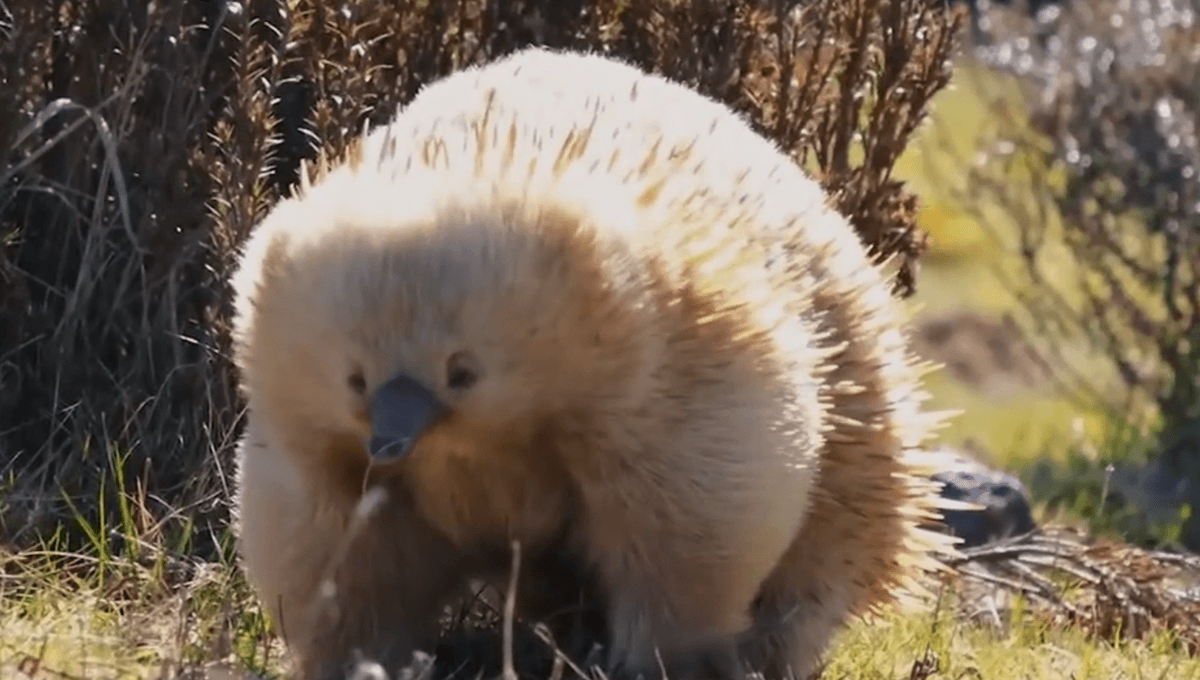-
Fil d’actualités
- EXPLORER
-
Pages
-
Blogs
-
Forums
Like Catching A Super Rare Pokémon: Blonde Albino Echnida Spotted In The Wild

Like Catching A Super Rare Pokémon: Blonde Albino Echnida Spotted In The Wild
Echidnas are strange little fellas at the best of times, so imagine the surprise when a wildlife filmmaker stumbled upon one with striking white fur and bright blonde spines.
The rest of this article is behind a paywall. Please sign in or subscribe to access the full content. The extra-unusual individual was recently filmed by Taylor Jamii Film while shooting in the Cradle Mountain National Park of Tasmania, Australia. “After hiking and searching without luck for 6+ hours, we had given up on our quest to spot an echidna. Then just as we left the national park feeling defeated by these elusive little creatures, we spotted none other than a rare blonde echidna,” Taylor posted on Instagram. “I've never played Pokémon but if I did, I imagine this is what finding a Mew feels like,” she added. “Needless to say, I whipped out my zoom lens faster than I ever have in my life, to film this little one rolling around the scrub and eating his dinner. What. A. Day." Echidnas typically have mousey brown fur with lighter colored spines that look like blonde highlights. This one, however, has extremely pale blonde fur, likely caused by a genetic condition, such as albinism or leucism, which affects the production of the natural pigment melanin. There are four living species of echidna. In Tasmania, the native species is Tachyglossus aculeatus setosus, a subspecies of the short-beaked echidna that inhabits much of Australia. Known for their shy and reclusive behaviour, echidnas look a bit like a spikey porcupine with a long snoot – although they’re even stranger than that. Echidnas are the only other animals that belong to the taxonomic order known as monotremes, comprised of the only living mammals that lay eggs, alongside the platypus. Today, all living monotremes are native to Australia and New Guinea, where they’ve preserved their unusual traits in isolation from the rest of the world. Echidnas also possess a remarkable ability to tolerate high levels of carbon dioxide. Lacking strong offensive claws, they rely on burrowing into soil or sand when threatened. They can remain underground for extended periods, surviving in environments where air is limited and oxygen levels are low. Even in a land full of extraordinary wildlife, this rare blonde echidna is an exceptional sight. However, it isn’t the first of its kind ever documented. A small handful of other spiny monotremes with albinism or leucism have been photographed over the years, each one stunning the lucky observer who spotted it.


